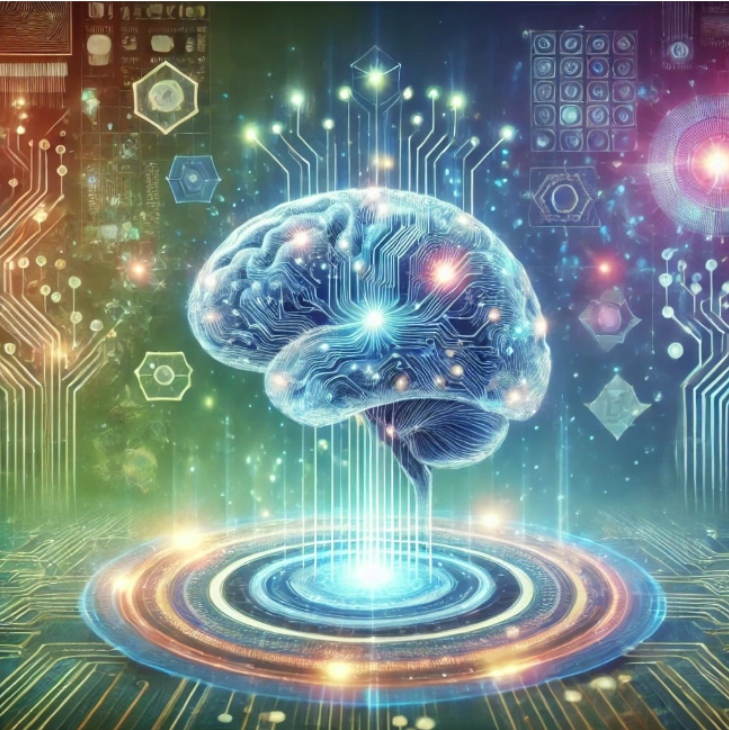In an era where artificial intelligence (AI) is rapidly transforming industries, redefining job roles, and reshaping the very fabric of our society, the concept of lifelong learning has evolved from a mere educational philosophy to a critical survival skill. As we navigate this new landscape, the ability to continuously adapt, learn, and grow has become paramount. This article delves into the importance of lifelong learning in the age of AI, offering insights, strategies, and practical advice for individuals looking to thrive in this dynamic environment.
Understanding Lifelong Learning in the Context of AI
Lifelong learning is more than just a buzzword; it’s a mindset and a commitment to personal and professional growth that extends far beyond traditional educational boundaries. In the context of AI, lifelong learning takes on new dimensions and urgency.
Defining Lifelong Learning
At its core, lifelong learning is the ongoing, voluntary, and self-motivated pursuit of knowledge for both personal and professional reasons. It’s a journey that doesn’t end with formal education but continues throughout one’s life. In the AI era, this concept extends to include:
- Technological Fluency: The ability to understand and interact with AI systems and other emerging technologies.
- Adaptive Thinking: The capacity to adjust one’s thinking and problem-solving approaches in response to new information and changing circumstances.
- Cross-disciplinary Understanding: The skill of connecting ideas across different fields, recognizing that AI’s impact spans multiple disciplines.
The AI Imperative
The rapid advancement of AI technologies has created an imperative for continuous learning. Here’s why:
- Job Market Evolution: AI is changing the nature of work across industries. Jobs that exist today may be transformed or become obsolete tomorrow, while entirely new roles are emerging.
- Skill Obsolescence: Technical skills have a shorter half-life than ever before. What’s cutting-edge today may be outdated in a matter of years or even months.
- Augmented Intelligence: AI is increasingly becoming a collaborative tool, augmenting human capabilities rather than replacing them entirely. Understanding how to work alongside AI is becoming a crucial skill.
The Multifaceted Benefits of Lifelong Learning in the AI Age
Embracing lifelong learning in the context of AI offers numerous advantages that extend beyond mere career security:
1. Enhanced Adaptability
In a world where change is the only constant, adaptability is a superpower. Lifelong learners cultivate a mindset that embraces change, seeing it as an opportunity for growth rather than a threat. This adaptability is crucial in an AI-driven world where:
- New AI tools and platforms are constantly emerging
- Business models are being disrupted and reinvented
- The nature of work itself is evolving at an unprecedented pace
2. Improved Problem-Solving Skills
Continuous learning enhances cognitive flexibility and problem-solving abilities. As you expose yourself to new ideas and perspectives, you develop a more diverse toolkit for tackling complex challenges. In the AI era, this means:
- Being able to approach problems from multiple angles
- Combining human intuition with AI-powered insights
- Identifying novel applications for AI in your field
3. Increased Creativity and Innovation
Contrary to popular belief, the rise of AI doesn’t diminish the value of human creativity—it amplifies it. Lifelong learners who understand AI can:
- Leverage AI tools to enhance their creative processes
- Identify unique opportunities at the intersection of human creativity and machine capabilities
- Innovate in ways that complement rather than compete with AI
4. Enhanced Career Resilience
In a job market increasingly influenced by AI, career resilience is crucial. Lifelong learners are better positioned to:
- Pivot to new roles or industries as needed
- Identify emerging opportunities before they become mainstream
- Demonstrate value in areas where human skills complement AI capabilities
5. Personal Fulfillment and Well-being
Beyond professional benefits, lifelong learning contributes to personal growth and well-being:
- It keeps the mind active and engaged, potentially staving off cognitive decline
- Provides a sense of purpose and accomplishment
- Offers opportunities for social connection through learning communities
Strategies for Effective Lifelong Learning in the AI Era
To fully harness the power of lifelong learning in the age of AI, consider the following expanded strategies:
1. Cultivate a Growth Mindset
Embrace the belief that your abilities can be developed through dedication and hard work. This mindset is crucial when facing the challenges posed by AI:
- View AI as a tool for enhancement rather than a threat
- Approach learning with curiosity and enthusiasm
- See failures as learning opportunities rather than setbacks
2. Develop a Personal Learning Curriculum
Create a structured approach to your learning journey:
- Identify key areas of focus based on your interests and career goals
- Set specific, measurable learning objectives
- Create a timeline for achieving your learning goals
3. Leverage AI-Powered Learning Tools
Use AI to enhance your learning experience:
- Explore AI-powered learning platforms that offer personalized curricula
- Utilize language learning apps that use AI for adaptive learning
- Experiment with AI writing assistants to improve your communication skills
4. Engage in Project-Based Learning
Apply your knowledge through hands-on projects:
- Participate in hackathons or innovation challenges
- Start a side project that incorporates AI technologies
- Volunteer for projects at work that allow you to explore new AI applications
5. Build a Learning Network
Surround yourself with others who share your commitment to lifelong learning:
- Join professional associations focused on AI and your field of interest
- Participate in online forums and communities dedicated to AI and continuous learning
- Attend conferences and workshops to connect with like-minded individuals
6. Practice Reflective Learning
Regularly reflect on your learning journey:
- Keep a learning journal to track your progress and insights
- Schedule regular reviews of your learning goals and adjust as needed
- Seek feedback from mentors or peers on your learning approach
Overcoming Challenges in Lifelong Learning
While the benefits of lifelong learning are clear, it’s not without its challenges. Here are some common obstacles and strategies to overcome them:
Time Constraints
In our busy lives, finding time for learning can be difficult. To address this:
- Schedule dedicated learning time in your calendar
- Use micro-learning techniques, focusing on short, focused learning sessions
- Integrate learning into your daily routine (e.g., listening to educational podcasts during your commute)
Information Overload
With the vast amount of information available, it’s easy to feel overwhelmed. To manage this:
- Focus on curated content from reputable sources
- Use AI-powered tools to filter and summarize information
- Practice active reading and note-taking techniques to retain key information
Motivation and Consistency
Maintaining motivation for long-term learning can be challenging. To stay consistent:
- Set small, achievable goals to build momentum
- Reward yourself for reaching learning milestones
- Find an accountability partner or join a study group
The Future of Work and Learning
As we look to the future, the integration of AI into our work and learning environments will only deepen. Here are some trends to watch:
AI-Human Collaboration
The future workplace will likely see increased collaboration between humans and AI:
- AI systems will handle routine tasks, freeing humans to focus on creative and strategic work
- Employees will need to develop skills in AI oversight and management
- New roles will emerge at the intersection of human expertise and AI capabilities
Continuous Skill Evolution
The rapid pace of technological change means that skills will need to be continuously updated:
- Traditional degree programs may be supplemented or replaced by shorter, more focused learning modules
- Employers may place greater emphasis on demonstrable skills rather than formal qualifications
- Lifelong learning will become an expected part of every job description
Ethical Considerations
As AI becomes more prevalent, understanding its ethical implications will be crucial:
- Learners will need to develop skills in AI ethics and responsible AI use
- There will be increased focus on the societal impacts of AI technologies
- Professionals in all fields will need to consider the ethical dimensions of AI integration
Conclusion: Embracing the Journey of Lifelong Learning
In the age of AI, lifelong learning is not just a pathway to success—it’s a necessity for thriving in an ever-changing world. By embracing curiosity, cultivating adaptability, and committing to continuous growth, we position ourselves not just to survive the AI revolution but to lead it.
Remember, the goal is not to compete with AI but to enhance our uniquely human capabilities—creativity, emotional intelligence, and complex problem-solving—in ways that complement and leverage AI technologies. As we embark on this exciting journey of lifelong learning, we open ourselves to a world of possibilities, innovation, and personal fulfillment.
The future belongs to those who are willing to learn, unlearn, and relearn. Are you ready to embrace the AI revolution and become a lifelong learner? The journey starts now, and the possibilities are limitless.



